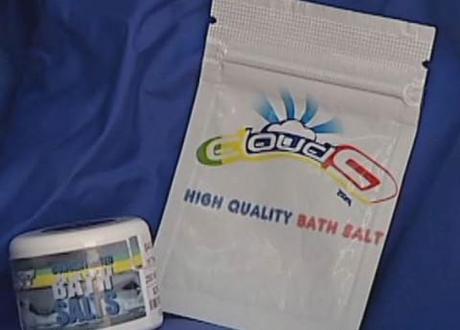
Don't put these in your bath!
The background
Since it emerged that Rudy Eugene, the man who ate part of the face of Ronald Poppo, was possibly acting under the influence of ‘bath salts,’ the dangerous new synthetic drug has been under the media microscope. Until Eugene’s gruesome attack, which earned him the ‘Miami cannibal’ and ‘Miami zombie’ nicknames, bath salts were relatively unheard of outside A&E wards and poison centres. Now everyone is asking what the heck are ‘bath salts’ and wondering if they really can turn people into naked, flesh-eating cannibals.
Let’s get one thing straight straight away; bath salts are not bath salts
Despite the euphemistic name, bath salts are no relation to the, er, bath salts that some people put in the bath to soften the skin. The bath salts in the news right now are a homebrew product cooked up by dastardly drug dealers and desperate drug users. The chemicals in bath salts are cousins of the amphetamine agents that debuted as crystal meth.
“’Bath salts’ are a home-brew product right out of Breaking Bad: a hallucinogenic powder made by some lost chemistry major with pushy friends and serious debts,” said Kent Sepkowitz at The Daily Beast.
Latest in a long line of dangerous synthetic street drugs
“It’s nothing new. It’s stimulant abuse in its most recent formulation, and unfortunately, it leads to bad consequences, but it’s really no different than other waves of other stimulant abuses in the past,” Tamas Peredy, an emergency-room physician in Portland, Maine, and medical director of the Northern New England Poison Center, told The Christian Science Monitor.
Bath salts contain a particularly nasty concoction of chemicals
“This is a terrible drug because it takes a combination of methamphetamine, and the paranoia and the aggressiveness, and LSD, the hallucinations, and PCP, the extreme paranoia that you get, combines it into one, and has unpredictable effects on human behavior,” Paul Adams, a doctor at Miami’s Jackson Memorial Hospital, told CNN.
Bath salts encourage ‘mind-rattling’ hallucinations but don’t lead directly to acts of cannibalism
Writing for The Daily Beast, Kent Sepkowitz, an infectious-disease specialist in New York City, drilled down into “what ‘bath salts’ will – and won’t – make you do.” “Most contain a synthetic designer drug that can induce a mind-rattling hallucination – but they’re unlikely to unleash an epidemic of cannibalism,” reassured Sepkowitz. “It is extremely unlikely that in ‘bath salts’ we have found the key that will unlock an epidemic of cannibalism. Rudy Eugene is a singularly sad person who met a singularly sad end,” adjudged Sepkowitz. “For some, perhaps, either because they are predisposed or because the dose they consumed was too great, bizarre, self-destructive, and violent behavior has occurred,” acknowledged the writer. “But the urge to gnaw, no. That falls outside the understandable.”
A bath salts user speaks
CNN interviewed Freddy Sharp, a long-time drug user from Tennessee, who had dabbled in bath salts and insisted that it was the worst high he’d ever been on. “It felt so evil. It felt like the darkest, evilest thing imaginable,” commented Sharp, who said he’d never felt the urge to “eat anybody’s flesh” while on the drug, but described feeling “10 feet tall and bulletproof.”
Here’s a shocking video of Sharp high on bath salts:
Bath salts’ users’ paranoid rages worrying emergency services
The Christian Science Monitor said the “lurid case” of Eugene sadly isn’t isolated. The paper reported that police and emergency officials as far flung as Maine and Louisiana have been “coping with their own surreal 911 calls also linked to the drug quaintly known as ‘bath salts’” The paper said the “common theme” behind a recent spate of wild acts “is a strong suspicion that the causes of such erratic behavior were the cheap, potent, innocent-looking, and, until recently, legal and undetectable, synthetic drugs that spark hallucinatory, paranoid rages.”
It’s still, er, legal (and cheap as chips)
Until recent months, the drug was legal in most US states, widely available in tobacco shops or convenience stores, sold under other names like Ivory Wave or Vanilla Sky, reported The Christian Science Monitor, which noted that for $20 to $40 a user can get enough bath salts to “get a high that would otherwise cost, for example, $2,000 worth of cocaine.” But the crackdown has begun. At least 38 states have recently passed some sort of ban or restriction, according to the National Conference of State Legislatures, and the US Drug Enforcement Administration has put three bath salt compounds on its emergency ban list.

